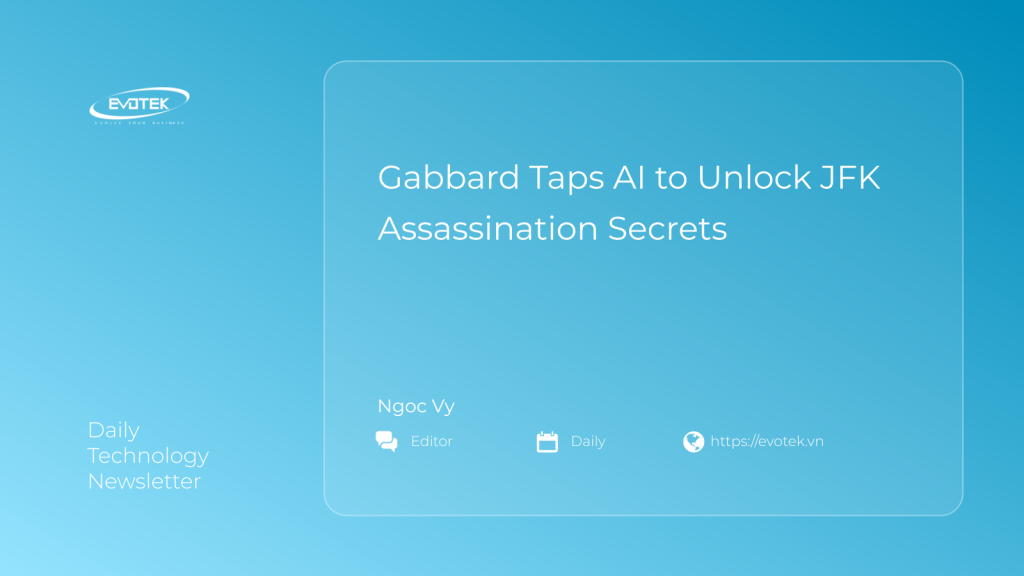Former Congresswoman Tulsi Gabbard revealed an innovative approach to declassifying government documents related to the John F. Kennedy assassination: artificial intelligence. Speaking at an Amazon Web Services conference, Gabbard explained that during her tenure as Director of National Intelligence, she utilized AI to sift through tens of thousands of JFK files.
According to the Associated Press, Gabbard tasked the AI with identifying any information that might warrant continued classification. She emphasized that this method significantly accelerated the review process, which previously relied on manual examination by human analysts.
“We have been able to do that through the use of AI tools far more quickly than what was done previously—which was to have humans go through and look at every single one of these pages,” Gabbard stated at the Washington, D.C. summit.
The initiative resulted in the release of approximately 80,000 pages of JFK files, devoid of any major revelations, early in Trump’s second term. Gabbard asserted that without AI, this task could have taken months or even years to complete.
No Redactions Promised
When the release was announced, then-President Trump pledged full transparency. “I don’t believe we’re going to redact anything. I said, ‘Just don’t redact. You can’t redact,’” he affirmed. “I said during the campaign I’d do it, and I am a man of my word.”
However, reports indicated that the released documents presented challenges. A New York Times analysis noted that many were handwritten, difficult to decipher, and lacked proper agency identification.
Embracing AI in Intelligence
Gabbard, known for her alignment with Trump, has expressed enthusiasm for the broader adoption of AI within American intelligence operations. This comes amid ongoing debates about the potential drawbacks and reliability of the technology.
“[There’s] been an intelligence community chatbot that’s been deployed across the enterprise,” Gabbard commented, according to MeriTalk. “Opening up and making it possible for us to use AI applications in the top secret clouds has been a game changer.”
Gabbard also expressed her intention to leverage private-sector technologies to empower intelligence professionals, enabling them to concentrate on tasks requiring unique human expertise. She stated she would “look at the available tools that exist—largely in the private sector—to make it so that our intelligence professionals, both collectors and analysts, are able to focus their time and energy on the things that only they can do.”
A Shift in Approach
Since joining the Trump administration, Gabbard has demonstrated a willingness to challenge conventional practices. She previously served as the U.S. Representative for Hawaii’s 2nd congressional district from 2013 to 2021 and left the Democratic Party to become a Trump ally.
Recent reports suggest Gabbard’s efforts to reshape intelligence briefings have faced scrutiny, and ethical concerns regarding the use of AI in government continue to be raised.

 日本語
日本語 한국어
한국어 Tiếng Việt
Tiếng Việt 简体中文
简体中文